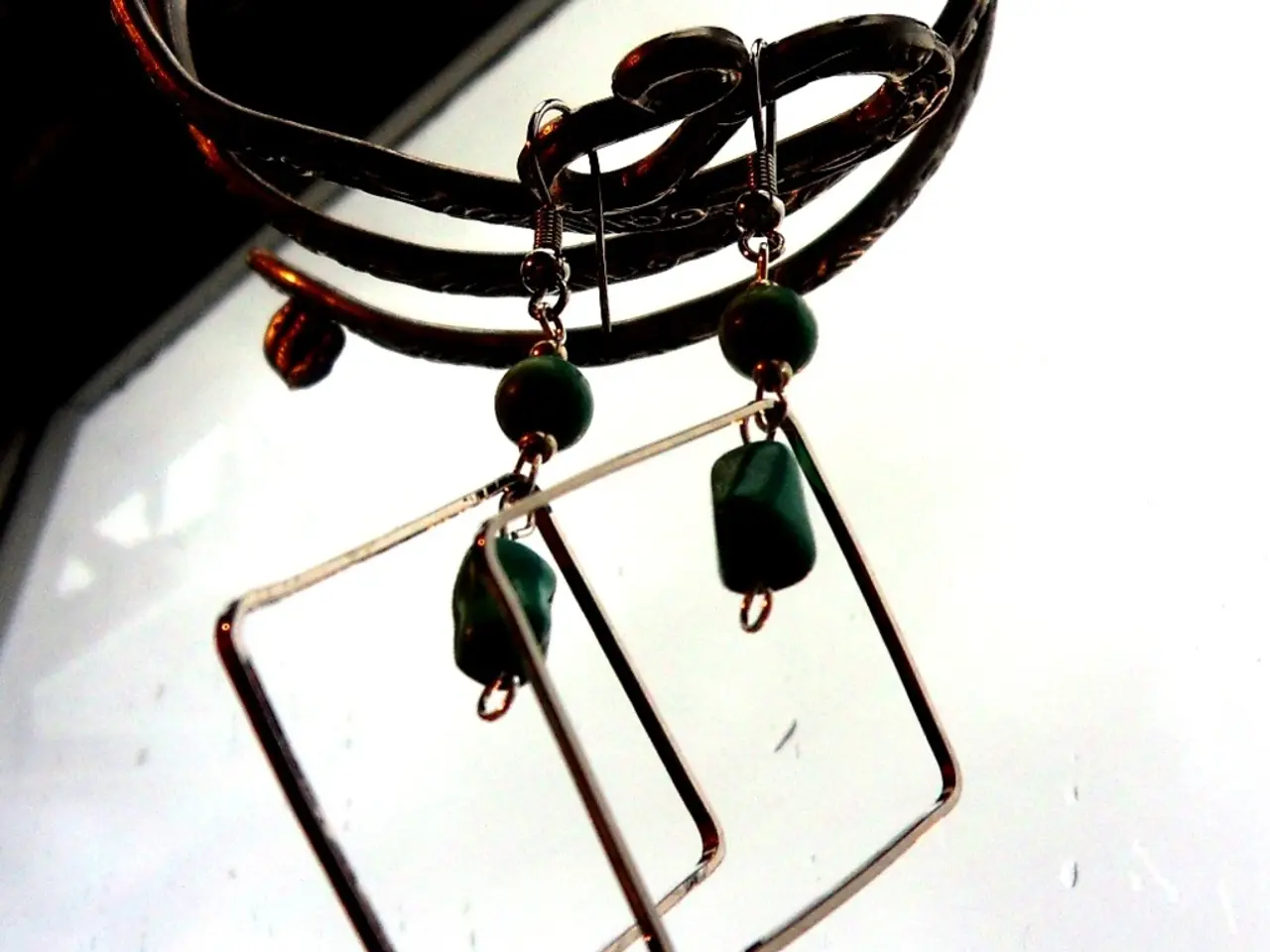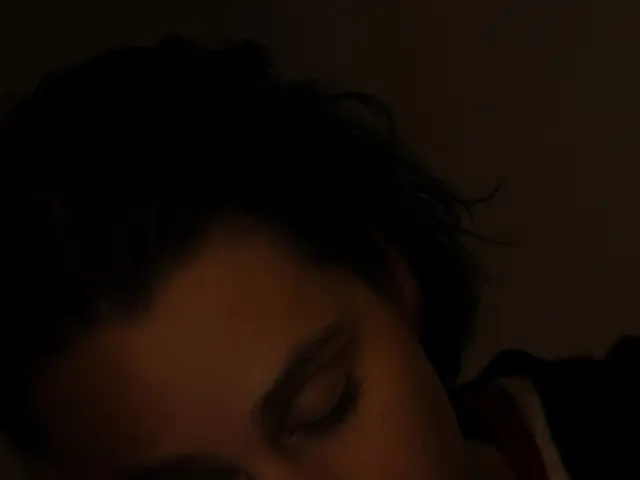Ear infections affecting both ears: Symptoms, remedies, and when to consult a medical professional
A double ear infection, also known as otitis media, occurs when both ears become infected by bacteria or a virus. While there are some home remedies that can provide relief from the symptoms, it is crucial to seek medical attention for proper diagnosis and treatment.
Symptoms of a double ear infection may include pain in the ears, difficulty sleeping, drainage from the ears, fatigue, headache, fever that lasts for 2 or more days, and problems hearing. In infants and toddlers, symptoms may also include crying more than usual, increased irritability, loss of interest in feeding, pulling on the ears, and persistent fever.
Effective home remedies for relieving pain and discomfort from a double ear infection include several natural approaches that can help ease symptoms. Warm compresses or a warm salt bag/water bottle applied to the infected ear can help relieve earache and reduce pain by improving blood circulation and soothing inflammation. Garlic oil, with its natural antibacterial properties, may help combat the infection and reduce pain when instilled into the infected ear, but this is more suitable for mild infections and should not replace medical treatment if symptoms worsen.
Putting 2 drops of olive or mineral oil in the ear may help soften and remove hardened earwax that could be causing discomfort. Inhaling steam can loosen mucus and relieve pain, especially if the ear infection is linked to sinus or cold-related issues. Hydrogen peroxide drops can help soften earwax and clean the ear canal, but should be used carefully and not if there is a ruptured eardrum or ear injury. A homemade ear drop solution of equal parts isopropyl alcohol and vinegar may help dry out moisture and treat bacterial infections such as swimmer’s ear, which can cause ear pain. Warm coconut oil can be instilled in the ear to soothe infections due to its antimicrobial properties.
However, it is important to note that these remedies are mostly supportive and for mild infections; antibiotics or other treatments may be needed for severe or double ear infections. If pain worsens, persists beyond a few days, or is accompanied by fever, discharge, or hearing loss, seek medical attention promptly. Additionally, avoid inserting cotton swabs or Q-tips deep into the ear canal as it can worsen the infection or cause injury.
A doctor diagnoses a double ear infection by checking a person's medical history, symptoms, and using an otoscope or pneumatic otoscope to examine the ears. An infection affecting only one ear may occasionally develop into a double ear infection. Enlarged adenoids may contribute to a double ear infection, especially in children.
To reduce the frequency or severity of ear infections, washing hands frequently, avoiding sick people, teaching children not to share utensils, avoiding exposure to cigarette smoke, staying up to date on immunizations, breast-feeding infants, and avoiding prolonged bottle-feeding at bedtime are recommended steps.
In some cases, persistent or recurrent infections can lead to hearing loss or other complications. Children with recurrent ear infections may require surgery to fit small ear tubes. It is also important to remember that ear infections are not contagious, but the respiratory infections that might accompany an ear infection are. There is a risk that a double ear infection will spread to other areas of the body.
It is essential to prioritise seeking medical advice for proper diagnosis and treatment, as a ruptured eardrum may occur after severe ear infections and will usually heal within a few weeks. Symptoms may not fully resolve until a person has completed the full course of antibiotics, which can take up to 10 days. Permanent hearing loss can result from damage to structures within the ear.
[1] Mayo Clinic. (2021). Ear Infection (Otitis Media). [online] Available at: https://www.mayoclinic.org/diseases-conditions/ear-infection/symptoms-causes/syc-20355220
[2] Healthline. (2020). 11 Home Remedies for Ear Infections. [online] Available at: https://www.healthline.com/health/home-remedies-ear-infections
[3] American Academy of Family Physicians. (2021). Otitis Media. [online] Available at: https://familydoctor.org/condition/otitis-media/
[4] WebMD. (2021). Ear Infection (Otitis Media). [online] Available at: https://www.webmd.com/children/guide/ear-infection-otitis-media#1
- A toddler experiencing discomfort may exhibit symptoms like crying more than usual, increased irritability, and pulling on the ears, in addition to ear pain and difficulty sleeping.
- Home remedies for a double ear infection can include the application of warm compresses or a warm salt bag/water bottle to the affected ear for pain relief.
- Garlic oil, with its natural antibacterial properties, may be utilized to combat the infection and reduce pain in mild infections, but it should not replace medical treatment when symptoms worsen.
- Putting 2 drops of olive or mineral oil in the ear can help soften and remove hardened earwax, providing relief from discomfort.
- Inhaling steam can help loosen mucus and relieve pain, especially if the ear infection is linked to sinus or cold-related issues.
- Hydrogen peroxide drops can help soften earwax and clean the ear canal, but they should be used carefully and not if there is a ruptured eardrum or ear injury.
- A homemade ear drop solution of equal parts isopropyl alcohol and vinegar may help dry out moisture and treat bacterial infections like swimmer’s ear.
- Warm coconut oil can be instilled in the ear to soothe infections due to its antimicrobial properties.
- Antibiotics or other treatments may be necessary for severe double ear infections or if symptoms like fever, discharge, or hearing loss persist or worsen.
- A doctor may use an otoscope or pneumatic otoscope to examine the ears and check a person’s medical history and symptoms to diagnose a double ear infection.
- Regular handwashing, avoiding sick people, and teaching children not to share utensils are recommended steps to reduce the frequency or severity of ear infections.
- Recurrent ear infections in children may require surgery to fit small ear tubes, and left untreated, they can lead to hearing loss or other complications.
- Permanent hearing loss can result from damage to structures within the ear, highlighting the importance of medical attention for proper diagnosis and treatment of double ear infections.








